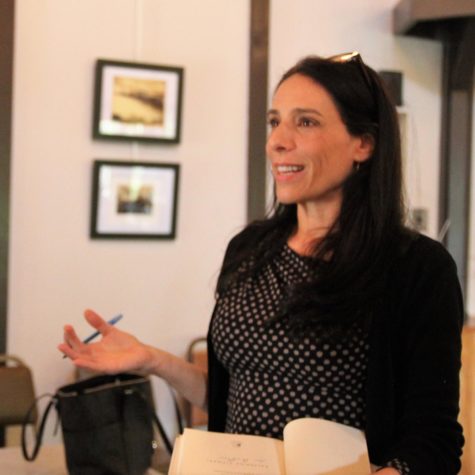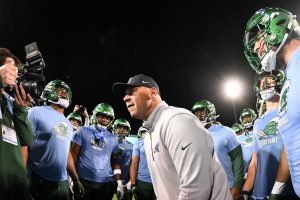Author and journalist discusses Christian nationalism in politics
November 9, 2022

Author and journalist Katherine Stewart spoke at Tulane University last Tuesday. Around 100 people attended to listen to Stewart discuss white Christian nationalism in the United States.
Stewart began studying the rise of America’s religious right in 2009 when, “something happened almost too small to notice all of a sudden until it was too big to ignore,” she said. A Good News Club, after-school clubs that are designed to convert children to “a reactionary form” of evangelical Christians, Steward said, came to her daughter’s public school. The confusion of school-sanctioned curriculum and the external teachings of the Good News Club confused children and parents in Stewart’s community.
Since then, she has written two books on the rise of religious nationalism in American politics: “The Power Worshippers: Inside the Dangerous Rise of Religious Nationalism” and “The Good News Club: The Christian Right’s Stealth Assault on America’s Children.”
“Christian nationalism is not Christianity. It is not a religion,” Stewart said. She described it as an ideology and movement that exploits religion for political motivations. She said the movement revolves around the belief that the United States is a Christian nation, and any problems in the country result from “having forsaken that supposed heritage.”
Stewart said Christian nationalists use “culture war issues” and “an authoritarian playbook” to further divide the country and employ bigotry and corruption to gain political power.
The blending of the movement with the Republican party has led to successful political organization and the implementation of Christian nationalist policies including climate change denial, election denial and racial discrimination, Stewart said.
Stewart’s research found that the suppression of women and the anti-abortion movement are major pillars of the American religious nationalist movement as well. The overturning of Roe v. Wade marked a victory for Christian nationalists.
“Women of a childbearing age are the first victims, but they are not the last victims,” Stewart said.
Stewart met with leaders of the Christian nationalist movement and studied the movement’s growing presence in American politics. She named Florida Governor Ron DeSantis, Florida Senator Rick Scott, former-President Donald Trump and other Republican politicians as participants in the Christian nationalist movement. Stewart said the Jan. 6 attack on the Capitol represented the violence of the movement.
Stewart believes journalists have a responsibility to cover the growing movement, but many journalists stay away from the topic.
Professor Andrew Ward is teaching “Rise on Christian Nationalism” for its fifth-consecutive term this spring, concerning the same issues Stewart studies. Stewart has guest lectured four times in this class and plans to again in the spring, according to Ward.
“We should be careful of efforts to normalize extremism,” Stewart said. “If a person steps up and does a little more than they did before … and invests in the political process in meaningful ways, we can really turn the tide.”









Leave a Comment